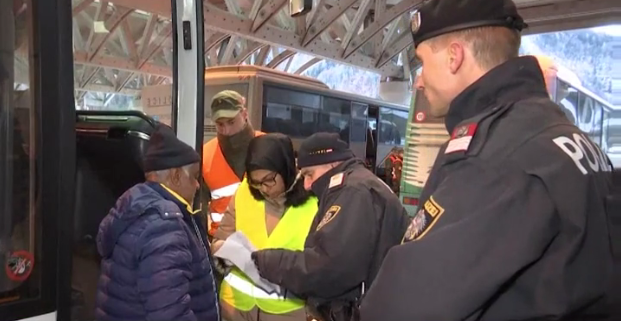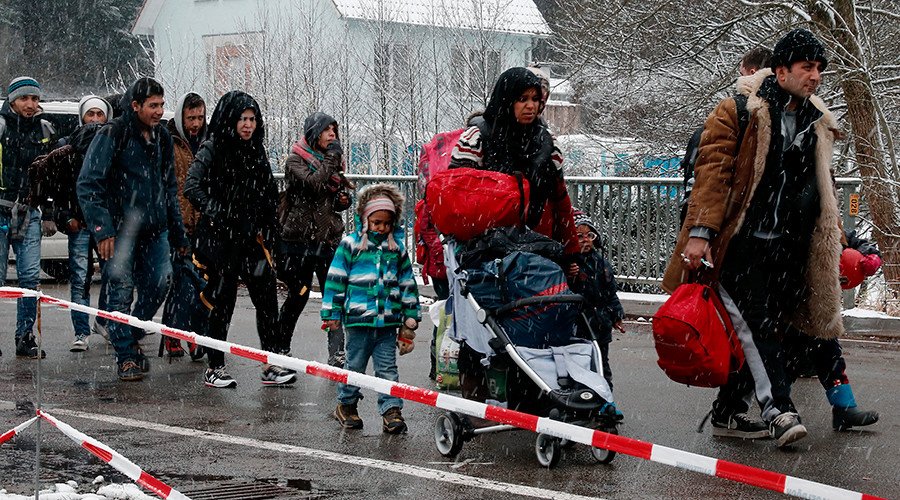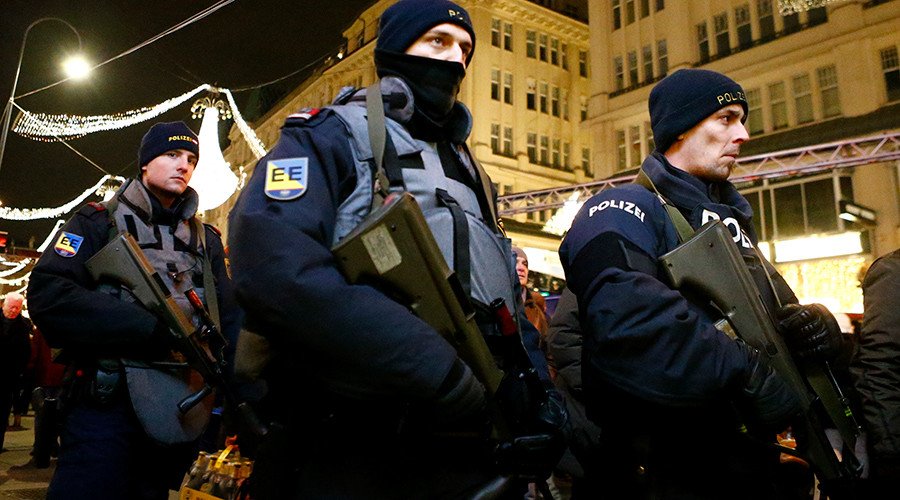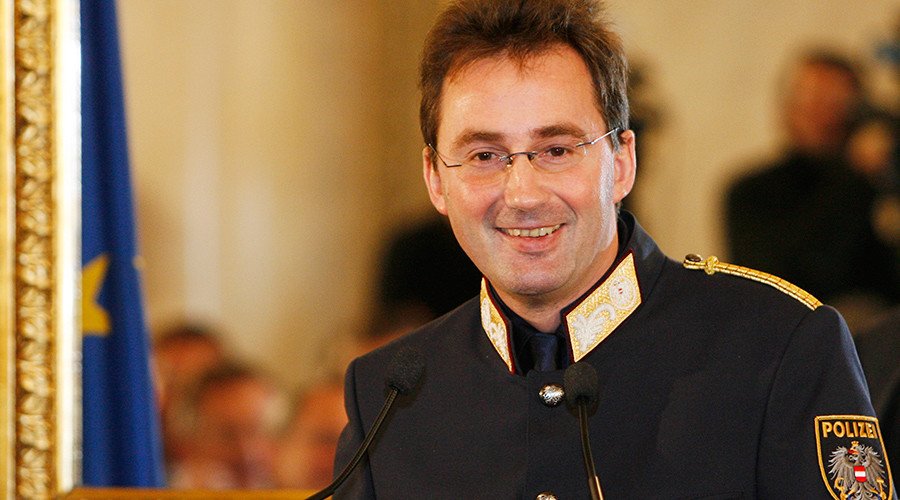Jewellery seized from refugee families in Germany
Authorities
say asylum-seekers must pay for their stay as the UN claims the
practice risks stoking xenophobia
Germany
has begun confiscating money and family jewellery from refugees to
pay for the cost of their stay, in a practice the United Nations
said contributed to "xenophobia and fear".
The
policy has already been implemented in Denmark, where it prompted
comparisons to the Nazis' seizure of gold and valuables from Jews
and others during the Second World War.
"Asylum-seekers
are searched on arrival in reception centres for documents,
valuables and money," said Joachim Herrmann, the Bavarian
interior minister.
Cash
and valuables can be seized if they amount to more than euros 750.
In the southern state of Baden-Wurttemberg, any assets in excess of
euros 350 are seized.
The
German government's Integration Commissioner said the police were
acting in accordance with the law. By confiscating valuables, the
states says they are implementing federal laws that require
asylum-seekers to use up their own resources before receiving state
aid.
"Anyone
who claims asylum with us must use up his own income and assets
before being given benefits as a matter of principle," said
Aydan Ozoguz. "This includes family jewels."
Ulla
Jelpke, an MP from the Left Party (Die Linke), criticised the move.
"Those who apply for asylum are exercising their basic rights
[under the German Constititution]. That must not - even if they are
rejected - be tied up with costs," she said. Moves to
confiscate asylum seekers' property to pay for the services they
receive have stirred controversy elsewhere in Europe.
The
United Nations Human Rights Council spoke out yesterday against a
proposed law in Denmark that will allow refugees' property to be
confiscated. The US was among a number of countries to express
concern over the planned legislation at the UN Human Rights Council
yesterday (Thursday).
Under
the proposal, assets in excess of 10,000 krone will be seized, but
wedding rings and other items of sentimental value are exempt. In
Switzerland assets in excess of 1,000 francs are confiscated.
Germany
and Denmark have defended the policy on the basis that the same
rules apply to their own citizens when they claim benefits.
"The
Danish welfare state is based upon the very simple principle that
the state will provide and pay for those unable to take care of
themselves, not for those who are able," said Kristian Jensen,
the Danish foreign minister. "This simple principle applies for
Danes seeking unemployment benefits, as well as to asylum seekers."
Mr
Ozoguz said: "As an asylum-seeker you shouldn't be better off
than a benefits claimant."
Germany
is to extend temporary border checks to regulate the flow of
asylum-seekers until at least mid-February, the country's interior
minister said yesterday.
Thomas
de Maiziere said the checks were unlikely to be lifted in the near
future. Germany suspended border-free travel under the Schengen
agreement in September.
Meanwhile,
Slovenia announced it would keep out all migrants apart from those
planning to seek asylum in Austria and Germany.
No German – no money: Austria to fine refugees for refusal to integrate

Migrants
wait to access Austria at the border near the village of Sentilj,
Slovenia. © Leonhard Foeger / Reuters
Refugees
who refuse to attend special integration training courses in Austria
as a part of a new program may see their social benefits cut,
Austrian Foreign Minister Sebastian Kurz said.
“Those
who are not willing to learn German, who do not want to be part of
the labor market, who are not ready to attend an integration course,
will face social benefits cuts,” Kurz
said at the economic forum in Davos, adding that “it
is an absolutely necessary next step.”
“The
migrant inflow should be reduced but those, who do have the right to
get asylum, should be integrated into society,”the
minister dded.
Austria suspends #Schengen agreement, introduces ID checks http://on.rt.com/720v
His
words were reiterated by Markus Wallner, the head of Austria’s
western Vorarlberg region. “Here
can eventually be no avoidance behavior. Specifically, if someone
avoids attending the values training course, [his] social benefits
should be reduced,” he
said, as quoted by Austrian public broadcaster ORF.
Eight-hour ‘value
and orientation’ training
courses aimed at teaching refugees Austrian laws and social norms are
a part of the broader integration program developed and agreed by the
government and the heads of the Austrian regions on January, 20. The
first courses providing places for 400 refugees each will start in
February with the program envisaging two courses to be held each
month.
The
courses will cover the basic values embodied in the country’s
constitution, equal rights and equal treatment of men and women as
well as other democratic principles. The courses are organized by the
Austrian Integration Fund with the total budget of the project
amounting to €5 million ($5.4million).
Austria deploys army to halt migrants intending to transit through Germany http://on.rt.com/71za
The
courses are going to be taught in Arabic, Farsi/Dari and English.
According to Wallner, the monthly number of courses could be
increased in case of necessity. “We
will see, how it will work in the first quarter [of the year], and
can extend the offer if necessary,” he
said, as quoted by OE24.
Other
measures envisaged by the new integration program include German
classes and finding jobs for the approved asylum seekers, which could
be a significant challenge due to the low qualification of most
refugees. Only about 50 percent of the refugees already accepted by
Austria will be able to find work in the next five years, Kurz said
citing the data presented by the country’s labor market service
(AMS).
“Let’s
not delude ourselves. We have an intensive long lasting integration
process ahead of us,” the
minister said as quoted by OE24.
Gun permit requests & sales skyrocket in Austria amid refugee influx http://on.rt.com/71uh
At
the same time, both Kurz and Wallner expressed their support to idea
of introducing a cap on the number of refugees saying that Austria’s
capabilities are already overstretched. Both politicians advocated
also stricter border controls.
Wallner
claimed that cap on the refugee number is consistent with the Geneva
refugee convention and refugees can be denied entry into the country
as they already come from a secure third land. Kurz stressed that
border controls have already become a “reality
in Europe” adding
that not only Austria, but Germany and Sweden should take in all
refugees.
“We
must clearly demonstrate, how many [refugees] we can accept and when
our capabilities are pushed to the limit,” he
said, adding that Austria’s capabilities are now “seriously
overstretched.”
Vienna’s police chief under fire after advising women not to walk alone at night
http://on.rt.com/71bt
On
January, 20, Austrian Chancellor Werner Faymann announced a plan to
introduce a cap on the number of new arrivals that puts the number of
potential asylum requests the country could approve in 2016 at
37,500. In the next four years, Austria plans to take in a number of
refugees amounting to no more than 1.5 percent of its population.
According
to Sebastian Kurz, Austria, with its population amounting to fewer
than 8.5 million people, has so far accepted the second highest
number of refugees per capita in Europe, topped only by Sweden.



 RT
RT






































Thanks for taking time to discuss about this, i would like to read your upcoming blog so keep sharing, your blog having some unique content for my career enhancement.
ReplyDeleteRegards,
German Classes in Chennai|German Language Classes in Chennai